0200 Hrs GMT
London
Friday
16 April 2010
By © Muhammad Haque
We are publishing the following [accessible via the URL we have included here as well] for reference.
The words and the slant contained in the texts are not ours. They belong to those personnel who actually write the document and published online on Tower Hamlets Council’s official web site.
We shall examine the document in the near future. We are campaigning for a NO VOTE on 6 May 2010
"A council leader or an elected mayor? It's your choice.....
5 April
Alongside the council elections on 6 May, there will be a referendum asking voters if they support a new type of leadership for the borough, with a mayor directly elected separately from the councillors.
There will be changes to the council’s leadership system anyway from May, as new government rules mean the council will elect a leader for four years instead of annually.
The leader will decide how many cabinet members there will be and will appoint and allocate responsibilities to those members.
But following a successful petition under the Local Government Act 2000, the system could change again in October to a directly elected mayor, depending on the result of the referendum taking place.
People voting on 6 May will have an additional ballot paper asking them to vote ‘yes’ or ‘no’ to the following question:
“Are you in favour of the proposal for Tower Hamlets Council to be run in a new way, which includes a mayor, who will be elected by the voters of that borough, to be in charge of the council’s services and to lead Tower Hamlets Council and the community which it serves?”
If the majority of votes say ‘yes’, the council will move to a ‘mayor and cabinet’ system in October 2010, when a poll will be held to elect the first executive mayor of Tower Hamlets.
If the majority of votes at the referendum say ‘no’, the council will not introduce the mayoral system but will instead stay with the ‘leader and cabinet’ system. The leader elected by the council in May would then be appointed for the full four-year administration.
Both new systems are designed to provide strong leadership.
In either case, the leader or a mayor would have decision-making powers, and similar rules apply to cabinet appointments. The main difference will be in how they are elected.
The leader would be elected by fellow councillors, and the council would be able to remove him or her from office.
The council would not be able to remove a mayor directly elected by residents of the borough during her or his term of office.
The powers and duties of non-executive councillors – including scrutiny of the leader or mayor and cabinet, planning, licensing and other regulatory functions as well as representing ward residents – will continue under either system.
Since the option of a directly elected mayor was introduced by the Local Government Act, 13 local authorities in England have adopted the system, including three London boroughs – Hackney, Lewisham and Newham.
The post of elected mayor should not be confused with the current mayor of Tower Hamlets who carries out a ceremonial role and chairs the council meeting. If the council introduces a directly elected mayor, this ceremonial position would be re-named chair of council to avoid confusion.
Further information about the referendum and what is means to Tower Hamlets can be viewed on our election pages or by contacting the head of democratic services on 7364 4204.
The mayoral proposals may be inspected free of charge between 9am and 5pm, Monday to Friday, at the Town Hall, Mulberry Place, 5 Clove Crescent, Poplar E14 2BG.
What a ‘no’ vote means
If the majority of votes at the referendum say ‘no’, the council will not introduce the mayoral system but will instead stay with the ‘leader and cabinet’.
The leader elected by the council in May would then be appointed for the full four-year administration.
The main features of the ‘leader and cabinet’ model are:
The leader is elected by other councillors.
The leader will have decision-making powers for most of the local authority’s executive functions and services. He or she would choose between two and nine councillors to serve as cabinet members, including a deputy leader – and may delegate powers to the cabinet members or council officers.
The leader is appointed for four years but can be removed by the council during his/her term of office by a majority vote.
The existing civic mayoral position will be retained to carry out ceremonial duties including chairing the full council meeting.
What a ‘yes’ vote means
If the majority of votes say ‘yes’ in the referendum, the council will move to a ‘mayor and cabinet’ system in October 2010, when a poll will be held to elect the borough’s first executive mayor.
The main features would be:
The mayor would be directly elected and would serve for four years.
The mayor would have decision-making powers for most of the authority’s executive functions and services. He or she would choose between two and nine councillors to serve as cabinet members, including a deputy mayor – and may delegate powers to the cabinet members or council officers.
The mayor cannot be removed from office by the council.
A person cannot be both a councillor and the elected mayor at the same time. If a sitting councillor were elected as mayor, they would have to resign their council seat and a by-election would be held.
The civic and ceremonial duties currently performed by the mayor of Tower Hamlets will not transfer to the elected mayor but will remain with a separate post called chair of council.
Don’t forget to register
Your name must be on the electoral register if you want to vote on 6 May – just a month away.
The UK Parliamentary election will also be on this day, combined with the local government elections and referendum for an elected mayor.
Elections manager Louise Stamp said: “You must be on the electoral register to be able to vote in any election and with them taking place on the same day, it’s twice as important to ensure you are registered to vote in plenty of time. You can register now – do it as soon as possible.”
In the local election, residents are voting for councillors for their area – or ward. There are 17 wards in the borough, each represented by three councillors.
Registering to vote is easy. You can download a form from our electoral registration pages or call 7364 0872 or visit on of the One Stop Shops, Idea Stores or libraries.
Once your completed form has been received by the council, it will be processed and you will receive an acknowledgment letter advising you that you have been registered and stating your electoral number. The deadline for registering to vote in time for the May elections is 20 April.
Everyone aged 18 or above who is a British, Irish or a qualifying Commonwealth citizen is eligible to vote in both elections. If you are an EU citizen living in the UK you are only eligible to vote in the local government and referendum elections and not the UK Parliamentary election.
For more information about the elections see our election pages or call 7364 0872.
Thursday, 15 April 2010
Subscribe to:
Post Comments (Atom)














![Kay Jordan marched in Hanbury Street, Princelet street on 17 January 2006 [pictured below]](https://blogger.googleusercontent.com/img/b/R29vZ2xl/AVvXsEjmFpkcZgAW1eZKWId6O-xApvo7_zu4rL0QLz_ByB_FHaKbyUkAFfaPT1RdxXqjX-YVvveRu2zdPyr0pXqiFK-0SAjQd5vyTwGgGDnyU600Gk-gu-MueRhRIg_UhFT66fo8gzCl2tM4BX-8/s760/KHOODEELAAR%2521+No+to+Crossrail+Hole%252C+Demo+in+Hanbury%252C+Spelman%252C+Princelet+Streets+and+Brick+Lane+London+E1+17+January+2006.jpeg)
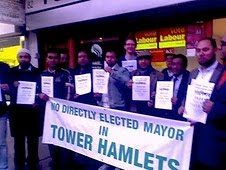
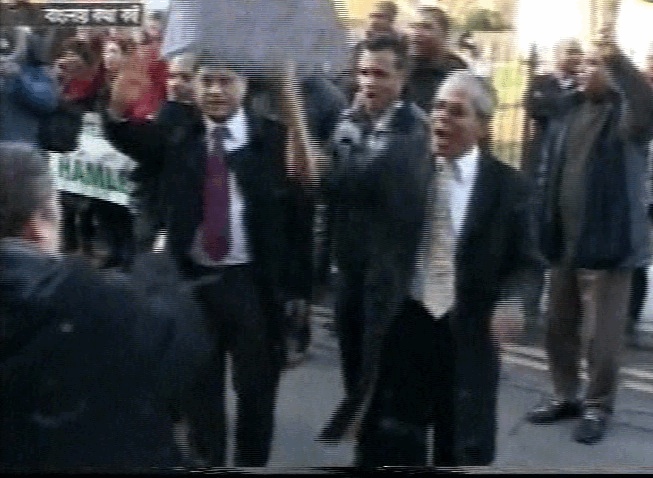



















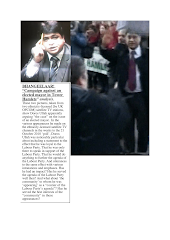


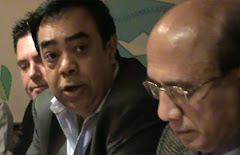

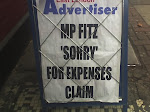

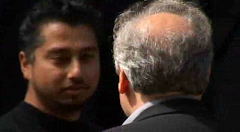
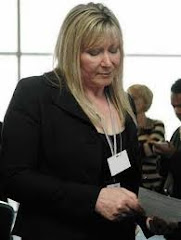
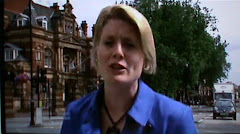


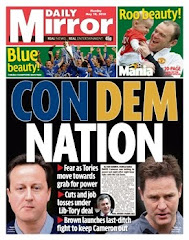
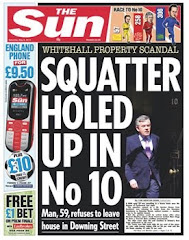
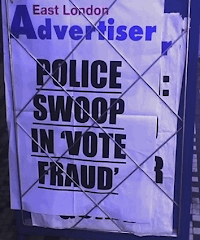
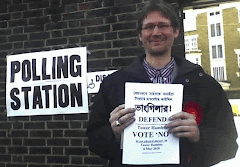
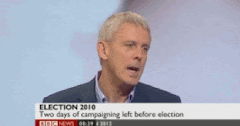

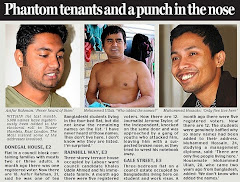
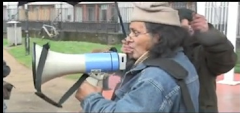


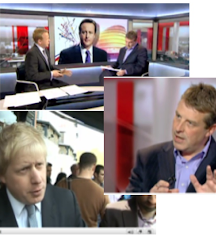
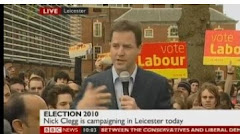
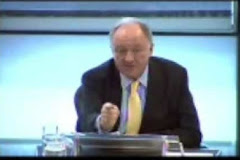
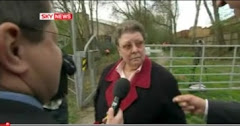
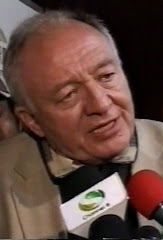
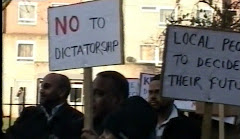


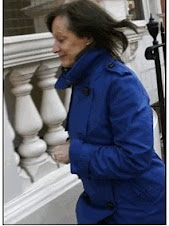
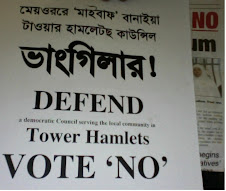
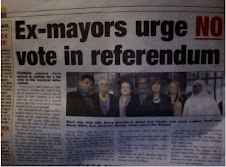
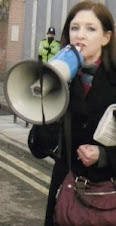
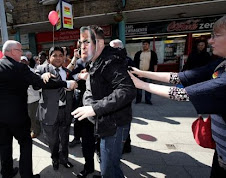
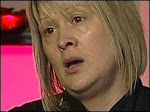
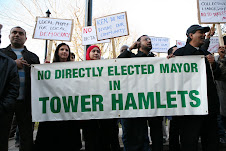
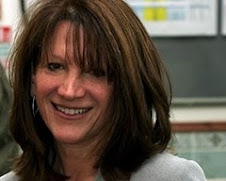
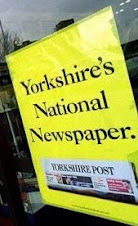

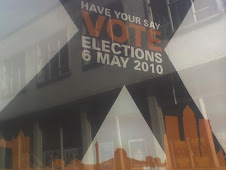
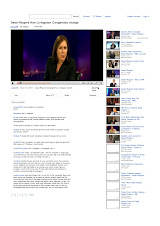
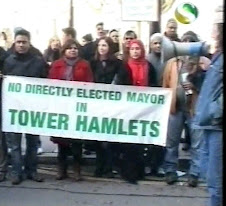
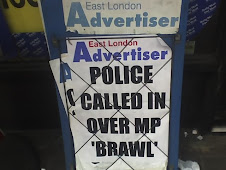
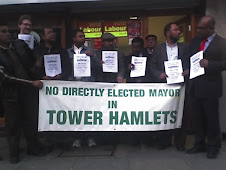
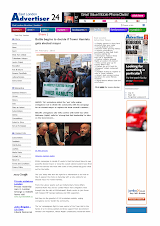
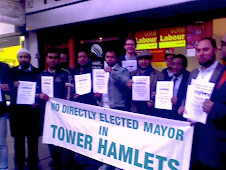
No comments:
Post a Comment